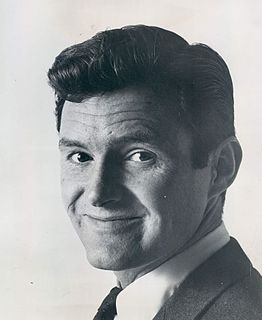A Quote by Mark Twain
There's some human instinct which makes a man treasure what he is not to make any use of, because everybody does not possess it.
Related Quotes
The human instinct for self-preservation is strong. I know, because mine pulls at me, too, like the needle on a compass. And everybody - I've been reading some philosophy - everybody seems to agree that the instinct and responsibility of all humans is to take care of themselves first. You have the right to self-defense. You have the right to survive, if you can.
Knowledge is humanistic in quality not because it is about human products in the past, but because of what it does in liberating human intelligence and human sympathy. Any subject matter which accomplishes this result is humane, and any subject matter which does not accomplish it is not even educational.
In 1859 the human race discovered a huge treasure chest in its basement. This was oil and gas, a fantastically cheap and easily available source of energy. We did, or at least some of us did, what anybody does who discovers a treasure in the basement - live it up, and we have been spending this treasure with great enjoyment
Can any man say with certainty that he was happy at a particular moment of time which he remembers as being delightful? Remembering it certainly makes him happy, because he realizes how happy he could have been, but at the actual moment when the alleged happiness was occurring, did he really feel happy? He was like a man owning a piece of ground in which, unknown to himself, a treasure lay buried.
Yet each man kills the thing he loves, By each let this be heard, Some do it with a bitter look, Some with a flattering word, The coward does it with a kiss, The brave man with a sword! Some kill their love when they are young, And some when they are old; Some strangle with the hands of Lust, Some with the hands of Gold: The kindest use a knife, because The dead so soon grow cold. Some love too little, some too long, Some sell, and others buy; Some do the deed with many tears, And some without a sigh: For each man kills the thing he loves, Yet each man does not die.
It is your organized religions that have made it clear through their most sacred scriptures that cruelty and killing is an acceptable response to human frailty and human differences. This goes against every human instinct, but organized religion has reorganized human thoughts. Some humans have even been turned against their own instinct for survival. And so people go around maiming and killing each other, because they've been told quite directly that this is what God does to them--and what God wants them to do to each other.
A man can be a hero if he is a scientist, or a soldier, or a drug addict, or a disc jockey, or a crummy mediocre politician. A man can be a hero because he suffers and despairs; or because he thinks logically and analytically; or because he is "sensitive"; or because he is cruel. Wealth establishes a man as a hero, and so does poverty. Virtually any circumstance in a man's life will make him a hero to some group of people and has a mythic rendering in the culture - in literature, art, theater, or the daily newspapers.
the only way in which a human being can make some approach to knowing the whole of a subject, is by hearing what can be said about it by persons of every variety of opinion, and studying all modes in which it can be looked at by every character of mind. No wise man ever acquired his wisdom in any mode but this; nor is it in the nature of human intellect to become wise in any other manner.





































